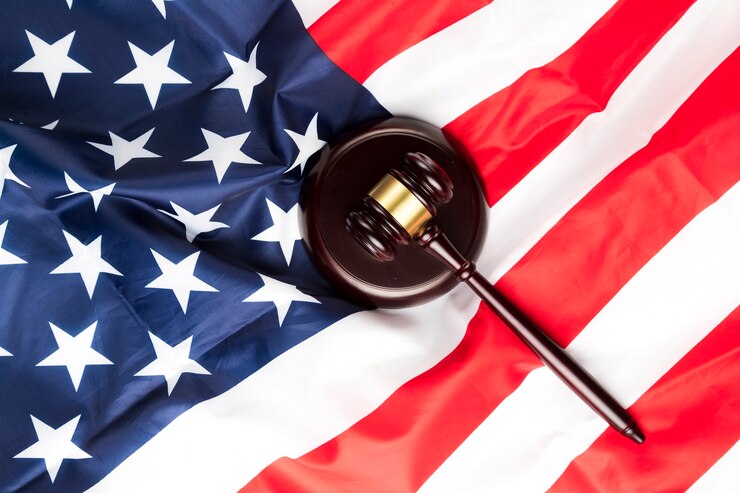In the realm of higher education, legal disputes involving faculty and institutions often serve as critical touchpoints for issues of academic freedom, professional integrity, and institutional responsibility. The lawsuit involving C.W. Park and the University of Southern California (USC) is one such case, capturing widespread attention due to its implications for faculty rights and the ethical standards within academic institutions.
This article delves into the details of the C.W. Park USC lawsuit, exploring the background, legal arguments, and the broader consequences for the academic community.
Background: Who is C.W. Park?
C.W. Park, also known as C. Whan Park, is a distinguished professor with a long tenure at the University of Southern California’s Marshall School of Business. Known for his contributions to the field of marketing and brand management, Park has built a reputation as a leading academic, with numerous publications in top journals and a significant impact on the academic and business communities.
His work at USC has not only elevated the university’s standing in the field of marketing but has also influenced countless students and professionals worldwide. Given his stature, the lawsuit involving Park and USC has sparked considerable interest and concern across academia.
The Allegations: What Led to the Lawsuit?
The lawsuit filed by C.W. Park against USC centers on allegations related to professional conduct, academic freedom, and the rights of faculty members. The case arose from a series of events and decisions that Park claims have unfairly damaged his reputation and career.
Key Allegations:
- Violation of Academic Freedom: Park alleges that USC violated his academic freedom by imposing restrictions on his teaching methods, research focus, and public statements. Academic freedom is a cornerstone of higher education, allowing faculty to explore and disseminate ideas without fear of censorship or retaliation. Park’s lawsuit argues that these restrictions not only hindered his ability to fulfill his professional duties but also undermined the very principles of academic inquiry.
- Defamation and Harm to Reputation: Another critical aspect of the lawsuit is Park’s claim that actions taken by USC have defamed him, causing significant harm to his professional reputation. This includes public statements and internal communications that, according to Park, have portrayed him in a false and damaging light.
- Breach of Contract: Park’s lawsuit also includes claims of breach of contract, arguing that USC failed to uphold agreements regarding his tenure, salary, and other contractual obligations. This aspect of the case highlights the often complex and contentious nature of employment agreements within academic institutions.
- Retaliation: Finally, Park alleges that USC retaliated against him for raising concerns about administrative decisions and for advocating for his rights as a faculty member. Retaliation claims are particularly serious, as they suggest a punitive response to legitimate concerns, potentially chilling free speech and dissent within the academic community.
USC’s Response: The University’s Position
In response to the lawsuit, USC has denied the allegations made by C.W. Park, asserting that the university has acted appropriately and within its rights as an employer. USC’s legal team argues that the decisions and actions in question were taken in the best interest of the university and its academic programs, and were not intended to harm Park or infringe upon his rights.
Key Points of USC’s Defense:
- Institutional Authority: USC contends that as an academic institution, it has the authority to set policies and make decisions regarding faculty conduct, research focus, and teaching methods. The university argues that these decisions are necessary to maintain academic standards and ensure the quality of education and research.
- No Defamation: Regarding the defamation claims, USC maintains that any statements made about Park were either true, based on reasonable assessments of his performance, or protected as part of the university’s administrative functions.
- Contractual Compliance: USC also disputes the breach of contract claims, arguing that it has fulfilled its obligations under Park’s employment agreement. The university asserts that any changes or decisions made were consistent with the terms of his contract and were justified by the circumstances.
- No Retaliation: Finally, USC denies that any actions taken against Park were retaliatory. The university argues that decisions affecting Park were based on legitimate academic and administrative considerations, not as punishment for his actions or statements.
Legal and Academic Implications of the C.W. Park USC Lawsuit
The outcome of the C.W. Park USC lawsuit has the potential to set significant precedents for higher education institutions, particularly in areas concerning academic freedom, faculty rights, and the balance of power between university administrations and their faculty.
Impact on Academic Freedom:
- Defining Boundaries: A key issue in this case is the definition and limits of academic freedom. The court’s ruling could clarify the extent to which universities can regulate faculty activities, including teaching, research, and public commentary, without infringing on their rights to academic freedom.
- Protection of Faculty Rights: If Park’s claims are upheld, it could strengthen protections for faculty members, particularly in cases involving defamation, retaliation, and breach of contract. This could lead to more stringent requirements for universities in handling faculty disputes and ensure greater transparency and fairness in decision-making processes.
Institutional Policies:
- Policy Revisions: The lawsuit may prompt universities to review and revise their policies on faculty conduct, academic freedom, and employment contracts to avoid similar legal challenges. This could lead to more clearly defined guidelines that balance institutional needs with faculty rights.
- Impact on Faculty-Administration Relations: The case also highlights the often tense relationship between faculty and university administrations. A ruling in favor of Park could encourage faculty members to be more assertive in defending their rights, potentially leading to more conflicts but also promoting greater accountability within institutions.
Conclusion: The Broader Significance of the C.W. Park USC Lawsuit
The lawsuit between C.W. Park and USC is more than just a legal dispute; it is a reflection of the ongoing challenges and tensions within higher education. The case touches on fundamental issues of academic freedom, faculty rights, and the responsibilities of institutions in supporting their educators.
As the case progresses, its outcome will likely influence not only the future of C.W. Park’s career but also the policies and practices of universities across the country. Regardless of the verdict, the lawsuit serves as a reminder of the importance of upholding the principles of fairness, integrity, and respect within academic institutions.
For educators, administrators, and students alike, the C.W. Park USC lawsuit is a pivotal moment that underscores the critical role of legal protections in ensuring that higher education remains a space for open inquiry, free expression, and mutual respect.











